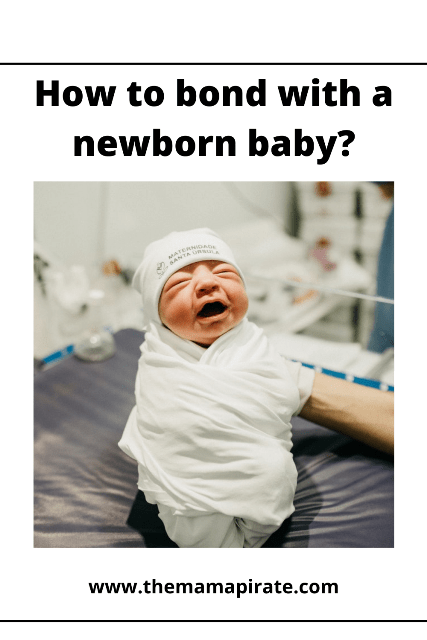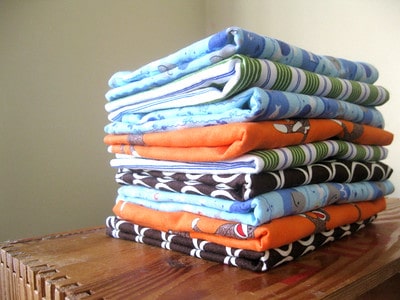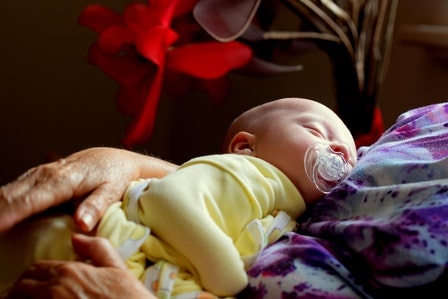Last Updated on 2 years by Namrata
The early bonding you and your baby develop plays a dominant role in your newborn’s future. It is so because the bonding laid the bricks for them and their relationships with others. After all, how you take care of them and respond to their requirements assists in shaping the way their brain develops.
As a parent, when you love and give affection to your infant, you can effectively create an excellent bonding. Based on numerous research, bonding and future are related to each other. The strong bonding between you and your baby enables both of you to make an intimate relationship, and it also fosters a sense of security in your inborn. Scientists say that parents’ responsiveness to their kid’s signals has a significant impact on their cognitive and social development. Thus, you should work on developing a firm bond when your baby lands in this world.
Importance of bonding with baby
By going through the above segment, you can understand the importance of bonding with your baby. Bonding is essential to offer your baby a safe, healthy, and productive life. Though most parents get a confused feeling about bonding, most babies are ready to bond instantly. But irrespective of what you feel as a parent, you have to understand that bonding is an ongoing process. It does not take place within minutes and stops after a specific time. Thus, as bonding is crucial, you should learn its importance and bond with your infant adequately.
- Attachment
As a parent, when you give your kids lots of care and attention, it will assist them in managing their feelings adequately. Not only this, but a strong bonding offers them a healthy and safe relationship as well. Experts call it secure attachment. When you and your newborn spend time together, it will help both of you to know each other better. As a result, nothing is more beneficial than bonding, as it is the best way to build a strong relationship.
- Bonding works both ways.
As a newborn parent, you and your partner are curious about your kids, their likings, dislikes, and many other things. Similarly, your baby also wishes to know you and develop a bond with you. That is why bonding works both ways, and it is also a simultaneous process. You will see your baby try to communicate with you in multiple ways. Therefore, if you take their cues and understand what they are communicating, it will help you to understand each other. It will again strengthen the relationship as they grow and develop. Though being a new parent is tiring, you should take some time to sit and enjoy yourself with your infant, especially when they are awake. In this, you cannot only build a strong bond with your baby, but it will also help them to choose a role model for their future.
- Bonding shares a message of safety and security.
Sometimes babies cry, and at that time, it is imperative to respond to their cries and not leave them as it is. Approaching your kid when they cry is not harmful. It will give them a feeling of safety and security that they require in the entire development cycle. It is a crucial factor that affects bonding because as you approach, babies can get someone on whom they can rely. If you bond from the very beginning in that way, you will see in the coming future your kid will only come to you when they are in trouble. Therefore, bonding not only shares a message of safety and security, but it also works as a problem solver for many kids.
- Bonding strengthens reactions
As a parent, you will notice babies love to see human faces rather than objects. As a result, you can start developing bonding from the very beginning. Based on a report, kids can concentrate best within 20cm. Due to this, if you make a strong bond, it will strengthen their reactions. You will see your baby turn their face towards you, easily recognize your voice, and know what you smell. On top of all, when you look, smile, and talk in front of your baby, you will do nothing wrong but help them comprehend how to interact with each other. Therefore, it is also one of the crucial importance of bonding with your infants.
- Bonding makes relations better with others.
A newborn does enjoy being with other people who play with them and have their way of communicating. Due to this, if other family members and friends develop a strong bond, it will help your kids to make relations. As they grow, you will see that they make friends with no difficulty and are very communicative. That is why one of the essential importance of bonding lies in this.
By considering the above importance, you might say that developing a bond nearly takes all your energy. But as a parent, you must make better relations with your kid, and the entire process is easy if you are not exhausted by doing other work. After all, if you give them care, affection, and emotional support, the result will be fruitful in the future for your baby.
Mother baby bonding problems
As a parent, you might find several problems bonding with your newborn. You might lose confidence and think that you are not good at parenting. But wait, it is not the actual scenario. You have to understand that bonding gets delayed due to various reasons. So, you might be wondering what those reasons are. To know these, read the section below. Here we have provided all the possible reasons that affect bonding.
- Your baby’s personality or temperament significantly influences bonding. If your kid is irritable, unresponsive, and difficult to comfort and control, you will face more difficulty establishing a strong bond.
- Several medical conditions affect the bonding. Conditions such as birth defects, illness, prematurity, and mother’s exhaustion make bonding difficult work.
- Hormones also harm bonding. Sometimes as a mother, you can have difficulty bonding with babies if you have postpartum depression or raging hormones.
- The caregiver’s or your behaviour also works as a shield in establishing a bond with your kid. Rejecting, uncompromising, critical, and interfering parents have babies who might avoid emotional intimacy. Besides, abusive parents have infants who become irritated with intimacy and withdraw.
- The atmosphere plays a crucial role in developing a strong bond with kids. If your baby lives in a fearful environment, you can never expect to make a good bond. Besides, if babies are distressed because of a pervasive threat, pain, or a chaotic environment, the baby might have a difficult time, and as a result, they cannot make a good relationship with you.
- As a mother, you can have several personal problems. But if you drag them when playing with your kid, it will affect your child negatively, and you cannot develop a bond. That is why it is always wise to keep aside your issues to make a solid bond with your lovable kid.
To avoid these problems, you need to cooperate with your baby. Remember that understanding each other is necessary to share a good bond. Do not get overwhelmed if your kid is irritated.
How do I know if my baby has bonded with me?
As a parent, you might be wondering what are the ways determine whether your kid has bonded with you or not. Relax, as there are multiple ways you can discover it. Though developing a firm bond requires time and proper attention, your kid might share a good bond after some days or weeks. So, keep these entirely aside and learn the ways by going through the upcoming segment.
- Recognizes and turns toward you
Babies can hear sounds when they are 20 weeks old. At that time, your voice is comfortable and soothing to your kid. As a result, after their birth, your infant easily recognizes you when you make a sound. They will turn toward you after hearing your voice. It is nothing but the result of bonding that you share with your toddler even before delivery.
- Melting in Your Arms
If you see your baby melting in your arms, it is a sign that you share a good bond. Kids melt when you give comfort. On the contrary, some babies are difficult to calm. But it does not mean that they hate you. It just indicates that you have not discovered what they want yet. If you give some time, you will see a fruitful result. Therefore, it is also an effective way to determine whether your kid has bonded with you or not.
- Smiles and giggles
When babies are around 2-months of age, they will look at you, smile, and giggle. If your baby is interacting with you in that way, it is because of that bonding you have shared with them. It is because you have been successful in establishing a good relationship.
- Give you smooches
When your baby gives you kisses, it is a clear indication you have bonded successfully. As you kiss your kid to show your love and affection, your baby also offers you a smooch out of love.
- Imitates you
An effective way to learn whether your kid has bonded with you or not is if they imitate you. It is the representation of the purest flattery form. Therefore, if you discover your baby imitates you and your behavior, it is because of the relationship you share.
- Separation anxiety
If babies begin to cry when you drop them off, understand that those tears are a definite indication of affection and love. It is so because they already know you care for them, and as a result, they get worried when you take time to come back. You have to understand that those cries signify your importance in your kid’s life. That is why this is another effective way to discover the bonding you shared with your infants.
When do babies start to show affection?
Though each baby is unique and exhibits their personality accordingly, most kids begin to show affection when they are just a month old. Look at the below segment to know more about this.
- When babies are 12-months old, they start to express their feelings with a rounded mouth and widened eyes. That is why it is the best age to develop bonding.
- At around 2-months of age, they smile and giggle when you play with them. People called it a social smile.
- When they are 4-months old, they develop attachment. At that time, the baby will stop crying if you are around. Besides, the kids show their affection by making eye contact, smiling, and melting in your arms. They express themselves in that way because these are their communication styles.
- By about 4-6 months, kids become social and love to laugh, play, and. You will notice they become expressive and show affection by making facial expressions.
- During the age of 6 and 9 months. Kids develop a powerful relationship with their parents and other people in their lives. As a result, they show their affection more generously.
- When your baby is 9-12 months old, they will show their affection to the people they love and rely on the most.
Key Takeaways
After reading the entire article, by now, you must have learned how to bond with babies and the importance of bonding in their life. We have also shared common problems you will face during developing bonding and the ways you can discover whether you have shared a strong relationship with your kid or not. All this understanding will help you be a successful parent, and your baby also grows in a healthy and comfortable environment. Therefore, consider the significance of sharing a strong bond with babies and try to be a good parent so that your baby will consider you as an idol.
Read More Posts:
- Best Backpack with Baby Carrier
- Best baby items to buy on Black Friday
- 31 Must have Items for Traveling with a Baby
- List of kitchen essentials for new homeowners
- How to dress a newborn in winter from the hospital?
- Best double prams for newborn and toddler
- Diaper bag essentials for Mom |Dad |Newborn | Toddler |Hospital




